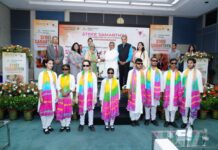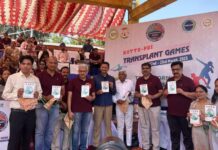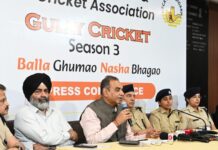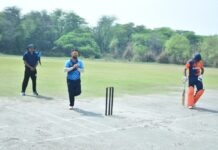Chandigarh
Calling for a strong law to protect journalists and demanding that criminal defamation law be struck off, renowned journalist and one of India’s best-known TV faces, Rajdeep Sardesai, said strong institutions in the media were the only bulwark for the media to really play a role it was meant to — asking tough questions — in society.
Sardesai, who was in Chandigarh Press Club as part of their series of special lectures, said, “It has become the new normal to brand a journalist nationalist or anti-nationalist. We have to realise that doing a story against someone does not mean we are their enemy.”
He added that journalists needed to be held accountable, of course, but not by gagging them as Rajasthan attempted to do recently.
“People see through attempts to favour or disfavour a particular ideology. On TV channels, the logic is: You are guilty till you prove yourself innocent? The same logic has now started applying in public’s dealings with the media as well,” he added.
He added, “Increasingly, in times where sense is to being replaced by sensationalism, news is being replaced by noise; the audience becomes sceptical of the media.”
On a question on social media, he said. “The word of the year, according to the Collins dictionary, is Fake News. So, verification and due diligence will remain key. Only journalists can do that. To control social media, the need is to get bigger organisations like Facebook, Twitter to have systems in place to regulate content.”
“Journalists have to be the trend-setters,” he said.Saying that journalists were losing the capacity to ask questions and illustrating this, he said, “Pollution was always a problem in Delhi, Yet, it is only now we learn that the Delhi government added no bus to its fleet in two years. Why?”
He attributed this to reduced distance between politicians and journalists, where Netas (leaders) have bhakts. He said that a reporter who was not a bhakt was increasingly being denied access.
He said increasing polarisation, where dialogue was increasingly ignored was a challenge to the country and to democracy.
“The clash of ideologies is turning into a personal battle,” he replied, to a question. “Journalists are not performers, they are observers and have to do their duty,” he added. Ending on an optimistic note, he added that the solution lay in the society that has to value good journalism and pay for it as well.
In the future, you could have a WhatsApp channel for Chandigarh, based on subscription, he added.“Journalism remains a good place to be. We are flag-bearers of truth,” he concluded, adding that digital was the future, but its business model needed to be made more sustainable.














